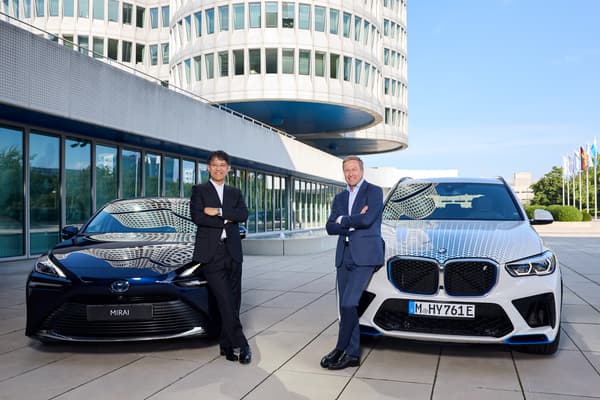German carmaker BMW announced Thursday that it will begin series production in 2028 of its first hydrogen-powered electric car model, using technology developed with Japanese group Toyota.
Hydrogen, in the shadow of the battery car
Toyota has already been producing a hydrogen-powered car since 2014, the Mirai, but sales have stagnated at a few thousand units per year.

BMW is one of the few European manufacturers working on hydrogen prototypes, a niche sector that most of its competitors have given up on due to a lack of infrastructure for charging and supplying green hydrogen.
French manufacturers, through Stellantis and Renault, continue to focus on this niche, but rather on a range of utility vehicles that run on hydrogen.
In passenger cars, car brands are betting on 100% electric batteries to replace combustion engines, with 2035 in their sights in Europe.
“Recharging” infrastructures will be developed
By the end of 2023, there were only 921 hydrogen refuelling stations worldwide, according to consultancy LBST, with China leading the way with 200 stations, twice as many as Germany, the European leader.
From this date, the sale of new petrol, diesel and hybrid vehicles will be banned in the European Union. A goal that is complicated by the slowdown in sales of electric models.
BMW and Toyota also said they are jointly promoting the development of a dedicated “charging” infrastructure.
Their partnership should allow for sharing the costs of developing hydrogen fuel cells, but not for joint car manufacturing.
“The hydrogen models from BMW and Toyota will retain their own brand identities and characteristics,” the press release said.
Source: BFM TV

